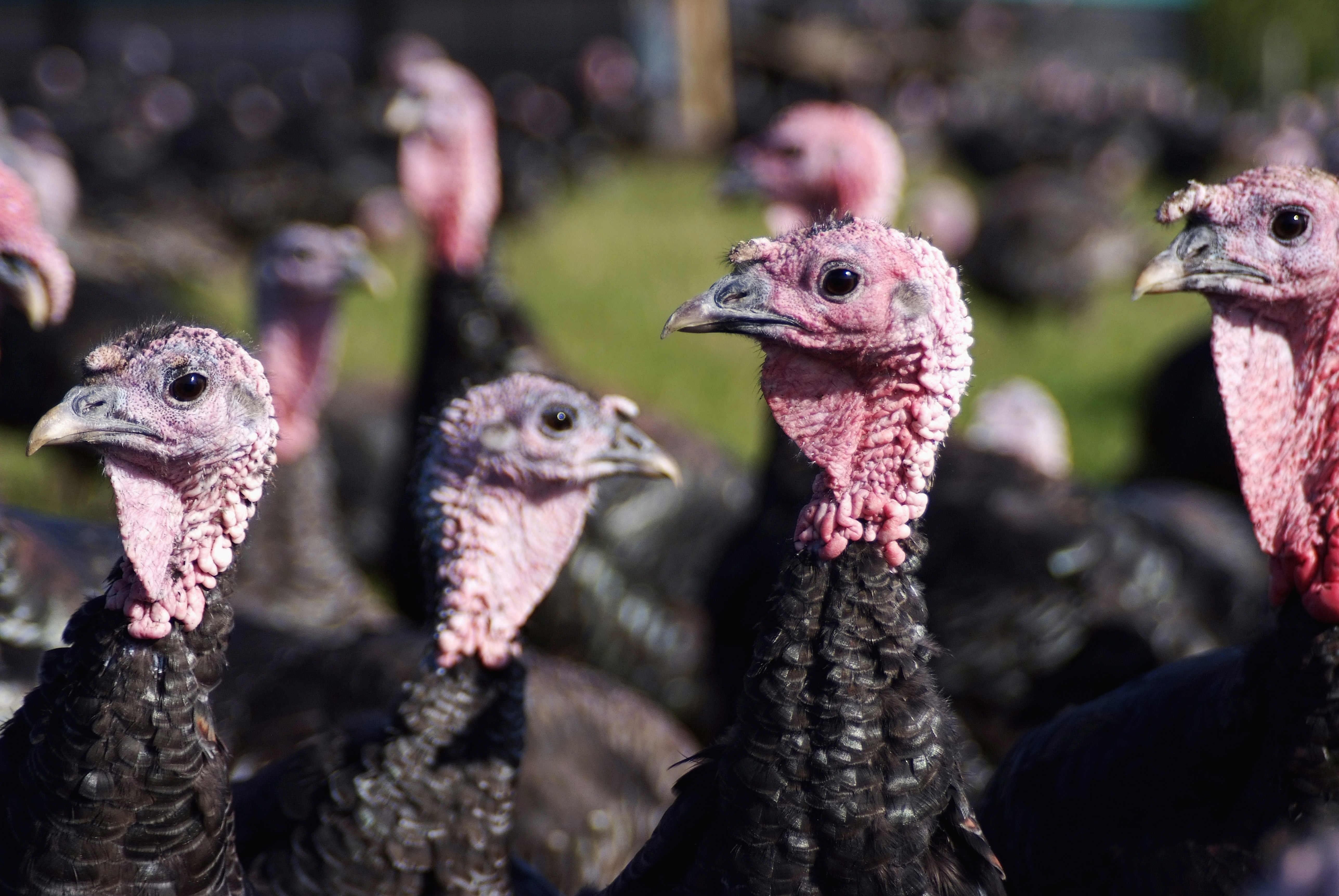How the Thanksgiving turkey was named after the country Turkey
But don't feel bad, English speakers: Almost every language has a perplexing name for the delicious fowl


The turkey, as you probably know, is native to North and Central America. So of course it's named after a Middle Eastern country, because why not, right?
You don't even know the half of it.
People will sometimes tell you that in Turkey, the turkey is called "the American bird." Actually, the Turkish name for the turkey is hindi. If that looks like the name of one of the main languages of India, that's because it is. The Turkish name means "[the bird] from India."
The Week
Escape your echo chamber. Get the facts behind the news, plus analysis from multiple perspectives.

Sign up for The Week's Free Newsletters
From our morning news briefing to a weekly Good News Newsletter, get the best of The Week delivered directly to your inbox.
From our morning news briefing to a weekly Good News Newsletter, get the best of The Week delivered directly to your inbox.
Next door to Turkey, in Arabic-speaking countries, the name for the turkey is dik rumi, "Roman chicken." In Israel it's tarnegol hodu, "rooster of India." In Greece, it's galopoula, which can mean "birdie" or "French chicken." The Khmer and Scots Gaelic names for it also mean "French chicken." But in France the turkey is dinde, which is shortened from poule d'Inde, "chicken of India."
In Belgium and the Netherlands, it's kalkoen. Kalkoen also shows up, as kalkun and kalkon, in Scandinavian languages. They're all cut-down names — from Calicut-hoen, "hen of Calicut." Calicut is a city in India, not to be mistaken for Calcutta. It's also known as Kozhikode, and it's a port in the southern state of Kerala. It had a lot of Portuguese trade starting in the 1500s.
Ah, yes, the Portuguese. What do they call the turkey? Peru. As in the country. That's also what it's called in Hindi.
No one is calling this bird by the right place of origin. So who's gaming us here? Mark Sundaram of Thorneloe University has an entertaining video that tells the whole story, but I'll cut to the chase: It's mostly the Portuguese.
A free daily email with the biggest news stories of the day – and the best features from TheWeek.com
The Portuguese didn't get the turkey from Calicut or anywhere else in India, of course. Their trade route — carrying spices and other goods — from India went up the African coast, where they picked up guinea-fowl, which are a lot like turkeys. They also picked up turkeys from Spanish traders coming from Mexico and sold them around Europe. But they didn't say where they got them from. Many people in Europe assumed they were from India, and in particular Calicut.
Not the English, though. They didn't get the turkey from the Portuguese. A fellow named William Strickland brought them over from the Americas in the 1500s. In 1550 he was granted a coat of arms with a turkey in it. That's right, they've been breeding and eating turkeys in England since the 1500s.
At the time, guinea-fowl were also popular, but they weren't called guinea-fowl. The English didn't know they were from the Guinea area of west Africa. The trade that brought them to England came through Turkey. So guinea-fowl were called turkey-cocks. When the American birds were brought over, they were at first thought to be the same thing. When the two species were sorted out, the American ones kept the name turkey. The Latin genus name for turkeys also kept the confusion: It's Meleagris, which was a Greek name for guinea-fowl.
That accounts for some but not all of the names. The Spanish word for turkey, pavo, comes from the Latin for "peafowl" (yet another kind of bird). Italian's tacchino supposedly imitates the sound the bird makes (I think the Farsi name, booghalamoon, is a more accurate rendition, but I've never owned a live turkey, so what do I know). German's Truthuhn also does — it comes from Trut and Huhn (nothing to do with truth!), which means "trut hen," apparently from a "trut-trut" noise it makes. Meanwhile, in many Turkic languages (but not Turkish!) it has names that mean "blue bird"; in Japanese and Korean it is called "seven-faced bird" (shichimencho/chilmyeonjo); and the standard Mandarin Chinese name huoji means "fire chicken," though it has a few other Chinese names, my favorite of which is tushouji, "cough-up-a-ribbon chicken," because of the red wattle hanging from its beak.
And peru? Were the Portuguese being devious? No, it was probably just because at the time Peru was being used in Portuguese to refer to Spanish-speaking America in general.
Oh, by the way, in Mexico, where the turkey came from originally, it's called guajolote. That comes from the Nahuatl (Aztec) name for the bird: huehxolotl. At least someone is giving a geographically appropriate name.
So anyway, would you like some cranberry sauce with your huehxolotl?
James Harbeck is a professional word taster and sentence sommelier (an editor trained in linguistics). He is the author of the blog Sesquiotica and the book Songs of Love and Grammar.
-
 Wilde Cambridge: home-away-from-home in a prime city spot
Wilde Cambridge: home-away-from-home in a prime city spotThe Week Recommends This laid-back aparthotel is the perfect base for a weekend of exploring
-
 The best alcohol-free alternatives for Dry January
The best alcohol-free alternatives for Dry JanuaryThe Week Recommends Whether emerging from a boozy Christmas, or seeking a change in 2026, here are some of the best non-alcoholic beers, wines and spirits to enjoy
-
 A lemon-shaped exoplanet is squeezing what we know about planet formation
A lemon-shaped exoplanet is squeezing what we know about planet formationUnder the radar It may be made from a former star
